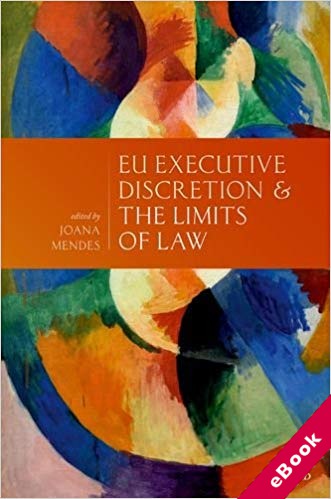
The device(s) you use to access the eBook content must be authorized with an Adobe ID before you download the product otherwise it will fail to register correctly.
For further information see https://www.wildy.com/ebook-formats
Once the order is confirmed an automated e-mail will be sent to you to allow you to download the eBook.
All eBooks are supplied firm sale and cannot be returned. If you believe there is a fault with your eBook then contact us on ebooks@wildy.com and we will help in resolving the issue. This does not affect your statutory rights.
The increase in the European Union's executive powers in the areas of economic and financial governance has thrown into sharp relief the challenges of EU law in constituting, framing, and constraining the decision-making processes and political choices that have hitherto supported European integration.
The constitutional implications of crisis-induced transformations have been much debated but have largely overlooked the tension between law and discretion that the post-2010 reforms have brought to the fore. This book focuses on this tension and explores the ways in which legal norms may (or may not) constrain and structure the discretion of the EU executive.
The developments in the EU's post-crisis financial and economic governance act as a reference point from which to analyze the normative problems pertaining to the law's relationship to the exercise of discretion. Structured in three parts, the book starts by analyzing the challenges to the maxim that the law both grounds and constrains EU executive and administrative discretion, setting out the concepts, problems and approaches to the relation between law and discretion both in general public law and in EU law.
It progresses to analyze how these problems and approaches have unfolded in EU's financial, economic and monetary governance. Finally, it moves on from these specific developments to assess how existing legal principles and means of judicial review contribute to ensuring the rationality and legality of EU's discretionary powers.